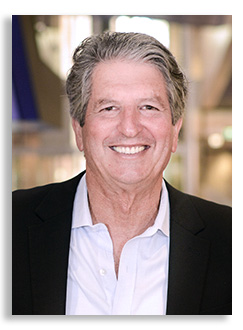
Click image for HiRes
Abstract
In this interview by PV Magazine Global at SNEC, Professor Martin Green discusses key topics and future directions in photovoltaic technology.
1. Silicon-Perovskite Tandem Cells: Green expresses uncertainty about the near-term commercialization of silicon-perovskite tandem cells due to insufficient field performance data and concerns over lead toxicity. He believes standalone silicon devices will remain dominant as silicon technology continues to be pushed to its efficiency limits.
2. Directional Efficiency in Silicon Cells: Green elaborates on the potential for improving silicon cell efficiency by leveraging the directionality of sunlight, which could push efficiency beyond the traditional 29.4% limit, possibly even exceeding 30%.
3. CZTS and Abundant Materials: Green highlights ongoing research into copper zinc tin sulfide (CZTS) cells, which are made from abundant, non-toxic materials. Despite holding the world record at 12% efficiency, he acknowledges the challenge of reaching the 20% efficiency threshold necessary for viable tandem cells.
4. Future Materials for Solar Cells: Green discusses new materials with the same crystal structure as silicon, known as adamantine compounds. These materials have shown promise in achieving high efficiency and could provide an alternative to perovskites if stability issues remain unresolved.
Overall, Professor Green emphasizes the ongoing need for research and development to overcome current limitations and improve the performance and viability of future solar technologies.
Click here to see all available video seminars.
Click here to go to the SPREE HOMEPAGE.
Brief Bio
Martin Green is Scientia Professor at the University of New South Wales, Sydney and Director of the Australian Centre for Advanced Photovoltaics, involving several other Australian Universities and research groups. His group's contributions to photovoltaics are well known and include holding the record for silicon solar cell efficiency for 30 of the last 35 years, described as one of the “Top Ten” Milestones in the history of solar photovoltaics.
Some of Professor Martin Green's Awards
2023 Queen Elizabeth Prize for Engineering
2023 Leigh Ann Conn Prize for Renewable Energy
2023 VinFuture Grand Prize in Hanoi for his transformational work in solar energy
2022 Millennium Technology Prize
2021 Japan Prize
2018 The Global Energy Prize for research, development and educational activities in the field of photovoltaics that have revolutionized the efficiency and costs of solar photovoltaics, making this now the lowest cost option for bulk electricity supply
2018 Celebrated Members of IEEE Electron Devices Society
2016 Ian Wark Medal and Lecture
2015 James Cook Medal of the Royal Society of New South Wales
2013 Fellow of the Royal Society of London
2012 Member of the Order of Australia 'for service to science education as an academic and researcher, particularly through the development of photovoltaic solar cell technology, and to professional associations.'
2009 Zayed Future Energy Prize finalist, recognised at the award ceremony for his ground breaking research in photovoltaic (PV) technology that will result in increased efficiencies, bringing solar energy closer to grid parity.
2008 Winner, 2008 Scientist of the Year Award
2006 Finalist, European Inventor of the Year (together with Stuart Wenham)
2003 Karl Böer Solar Energy Medal of Merit Award from the University of Delaware
2002 Right Livelihood Award for 'his dedication and outstanding success in the harnessing of solar energy, the key technological challenge of our age.''
2000 Millennium Award from the World Renewable Congress
2000 Medal of Engineering Excellence for Distinguished Achievement in the Service of Humanity from the World Engineering Federation (Hannover, 2000), 2000 Gold Medal from the Spanish Engineering Academy
1999 Australia Prize
1995 IEEE Ebers Award
1992 CSIRO External Medal
1990 IEEE Cherry Award
1988 Award for Outstanding Achievement in Energy Research[citation needed
1982 Pawsey Medal (Australian Academy)
